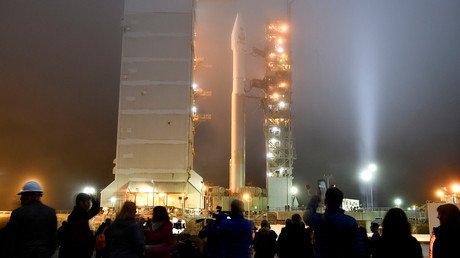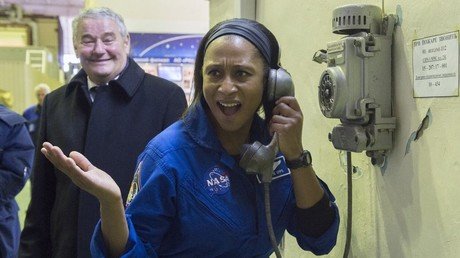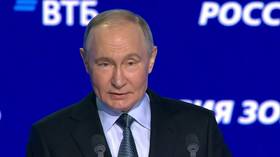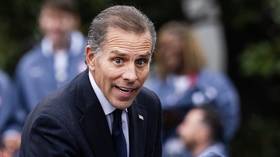New Roscosmos chief says Russia mulls reusable rockets, slams Elon Musk for ‘killing competitors’
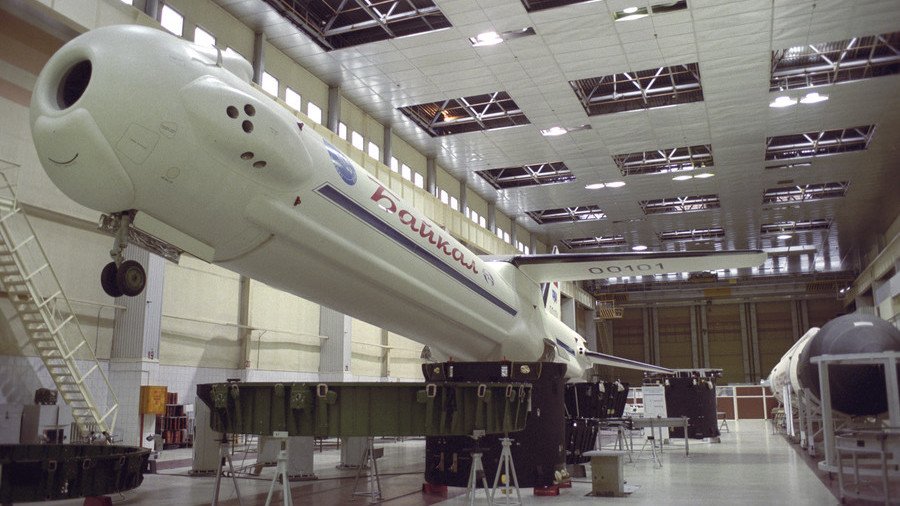
Russia may develop reusable first stages for its rockets, which would likely land horizontally rather than in the style of SpaceX’s Falcons, Roscosmos chief Dmitry Rogozin has said. He also had words for SpaceX boss Elon Musk.
The new heavy Soyuz-5 rocket, currently developed by Russia, must become more powerful yet remain cheaper than the products supplied by the competitors, the recently-elected head of the Russian space corporation told TASS in an extensive interview on Thursday.
While Moscow is looking into adding reusable elements to the Soyuz-5 to further lower launch costs, reusability is not a universal solution to achieve this goal, Rogozin believes. Musk’s SpaceX, which is currently the only company to have launched reusable rockets commercially, manages to cut the costs by other means, the Russian space boss pointed out.
“Musk’s advantage is not the reusability but that the US government gives him opportunities for dumping [prices] on the market. Musk sells his launches twofold to the Pentagon, covering his losses on the commercial market and killing competitors, who lack such a generous state behind them,” Rogozin said.
Due to its geography, Russia is largely unable to make Falcon-style reusable boosters that would make vertical powered descent to a movable platform at sea, and so it has to follow an alternate path sticking to horizontal landings or relying on parachutes, he said.
“Given our geographical position we lack such capabilities. We cannot bring sea platforms to the Altai mountains or to permafrost plains of Yakutia,” Rogozin said. “Regarding the means to return stages, it can be made ‘plane-style’ or with a parachute system.”
Back in June, Russian officials have confirmed that a project of a plane-style reusable first stage for super light rockets has been presented to Roscosmos. The said rocket would be capable of lifting some 600 kg to a Sun-synchronous orbit around Earth – typically 600-800 km in altitude. The reusable booster would be able to perform up to 50 launches, requiring a replacement of the main engines afterwards. The system is expected to cut costs of launch nearly in two compared to conventional disposable lifters, the Russian Foundation for Advanced Research Projects has said.
The new project is loosely based on the early 2000s concept of a reusable first stage for the Angara-family rockets, dubbed ‘Baikal.’ The particular project never went beyond a full-scale model, which was displayed at a number of exhibitions.
Rogozin’s interview comes days after NASA said that it is “working really hard not to be dependent on the RD-180 engine,” made by Russia’s Energomash, but at the same time “absolutely” wants to keep its special partnership with Russia going. At the moment, estimates say that the United Launch Alliance (ULA) can’t launch Atlas V without the Russian rocket engines up until 2025 or even 2028.
Think your friends would be interested? Share this story!
